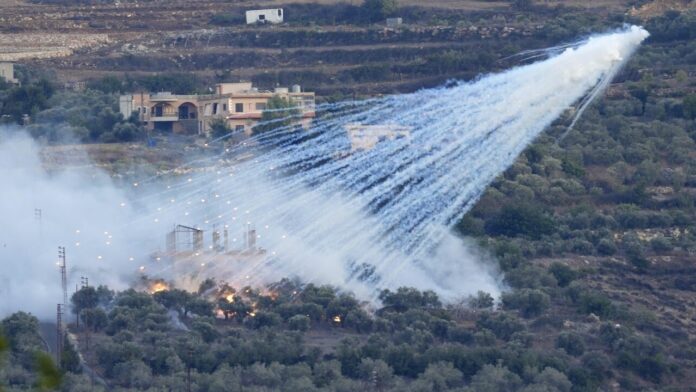Israel and Hezbollah increase cross-border attacks, raising fears of a full-blown war
Israel and the Lebanese Hezbollah group are escalating their cross-border attacks after months of sporadic fighting, leading the Israeli military to issue warnings of a potential large-scale offensive along the northern border.
The recent intensification in hostilities indicates a growing urgency for Israel to address the situation in its northern region, prompting concerns of a looming full-scale conflict, despite neither side expressing a desire for war.
The conflict between Israel and Hezbollah traces back to decades of animosity, with Lebanon and Israel officially at war since 1982. Following Israel’s invasion of Lebanon and its subsequent occupation of southern Lebanon until 2000, Hezbollah emerged as a prominent resistance group against Israeli presence, eventually leading to periodic clashes between the two sides.
In recent years, tensions have flared up periodically, notably in 2006 when Hezbollah abducted two Israeli soldiers, triggering a month-long war resulting in significant casualties on both sides. Since then, sporadic clashes and exchanges of fire have continued, with the latest escalation beginning after Hamas initiated an attack on Israel in October, leading to increased hostilities between Israel and Hezbollah.
The recent clashes have seen a rise in casualties, with an Israeli reservist killed in a Hezbollah strike, bringing the total Israeli casualties to 19. Both sides have expanded their attacks deeper into each other’s territory, with Hezbollah firing rockets into Israel and Israel targeting areas deep inside Lebanon.
Despite the escalating tensions, neither Israel nor Hezbollah has expressed a desire for all-out war. However, their actions risk inadvertently triggering a broader conflict, given the intensity of recent clashes and the deployment of heavy weaponry.
Analysis:
Political Impact: The escalation in tensions between Israel and Hezbollah has significant political implications, both domestically and regionally. Domestically, Israeli leaders face pressure to respond forcefully to cross-border attacks, particularly from right-wing factions within the government. Internationally, the conflict raises concerns about stability in the region and the potential for broader military engagement.
Social Reflection: The ongoing conflict between Israel and Hezbollah reflects broader societal debates and norms regarding security, national identity, and resistance movements. In both Israel and Lebanon, the conflict evokes strong emotions and nationalist sentiments, shaping public perceptions and attitudes towards the opposing side.
Psychological Aspect: The persistent threat of conflict and the spectre of war have profound psychological effects on civilians living in the affected areas. Fear, anxiety, and trauma are prevalent among populations exposed to frequent hostilities, leading to long-term psychological repercussions for individuals and communities.
Sociological Angle: The Israel-Hezbollah conflict intersects with various sociological factors, including religion, ethnicity, and geopolitics. The conflict underscores the complex dynamics of power and identity in the Middle East, highlighting the role of non-state actors like Hezbollah in shaping regional dynamics.
Fashion Culture: While not directly related to fashion trends, the conflict may indirectly influence cultural expressions, including clothing styles and symbols of national identity. In times of heightened tension, individuals may display patriotic attire or symbols associated with their respective communities as a form of solidarity or expression of identity.
